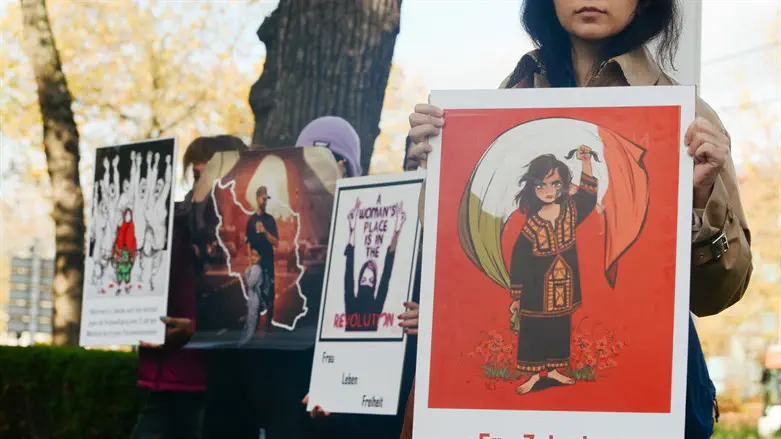
Iranian authorities have re-arrested a journalist who interviewed the father of the woman whose custody death sparked months of protests, just two days after her release from jail, activists said on Tuesday, according to the AFP news agency.
Nazila Maroufian left Tehran's Evin prison on Sunday, posting on social media a picture of herself without a headscarf in defiance of the Islamic Republic's strict dress code for women.
"Don't accept slavery, you deserve the best!" she wrote in her posts.
She has since been detained again and moved outside of Tehran to Qarchak women's prison, whose conditions are repeatedly criticized by rights groups, the US-based Human Rights Activists News Agency (HRANA) said.
The group, which collates information from activists, said it had confirmed her re-arrest with a source close to the family.
Maroufian, whose age is given by Persian media outside Iran as 23, in October published an interview on the Mostaghel Online news site with Amjad Amini father of Mahsa Amini, whose death in custody last September after she allegedly violated the dress rules sparked months of protests.
In the interview, Amjad Amini accused authorities of lying about the circumstances of his daughter's death.
A government crackdown on the demonstrations which broke out after Amini’s death resulted in hundreds of people being killed, including dozens of security personnel, and thousands arrested.
Iran has also cracked down on journalists who reported about Amini’s case. The two women journalists who helped to bring the story to the world's attention have now spent almost a year in Evin after being arrested in September.
Iranian authorities have questioned or arrested over 90 journalists since the nationwide protests last year.
The protests largely died down earlier this year following the crackdown. In July, Iranian authorities announced a new campaign to force women to wear the Islamic headscarf. Following the announcement, morality police returned to the streets.
In April, Iranian authorities announced that cameras would be installed in public places and thoroughfares to identify and penalize unveiled women.
